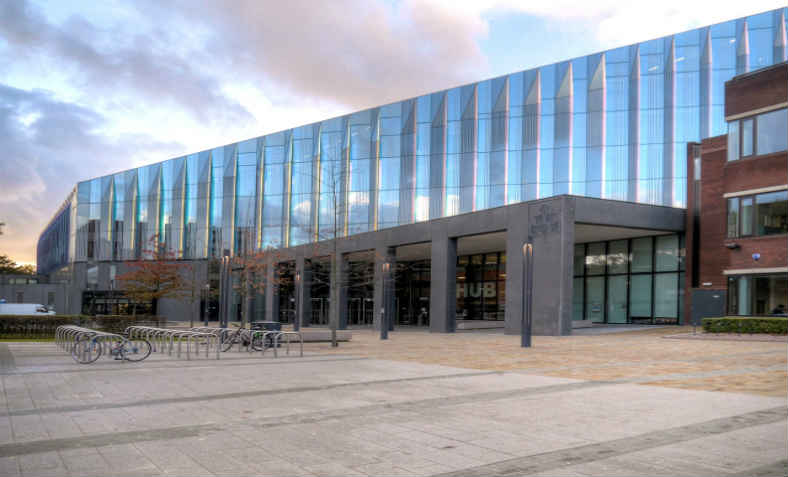 Manchester Metropolitan University Business School. Photo: Geograph.com
Manchester Metropolitan University Business School. Photo: Geograph.com
Universities are spending money on buildings and not learning and teaching, finds Susan Newman
The recent transformation of Gower Street and its surrounding neighbourhood, where several universities and colleges coalesce, has been dramatic. Architecturally exciting glass frontages have replaced old facades and the permanent presence of cranes signal further mega construction projects. These have been financed by cash windfalls from the tripling of undergraduate fees to £9000 in 2012 – universities in England enjoyed an annual surplus in excess of £1.5 billion in 2016-17 – and are deployed as part of the intense competition for students since the removal of caps on undergraduate numbers in 2015. Between 2014-15 and 2015-16, university investment in refurbishment and new facilities increased by 14.5%.
Meanwhile, since 2009, lecturers’ pay has fallen by 16% in real terms. Central administrative teams have been growing in size as the number of academic posts remains unchanged. Teaching shortfalls are plugged with the intensification of work by permanent staff and young academics on short-term precarious contracts. Vice Chancellors’ pay has soared from an average of £165,105 in 2005-06 to £257,904 in 2015/16, not to mention the expenses claimed that exceed the incomes of many academics. Those outside of the managerial elite have been increasingly deprofessionalised and proletarianised.
These are the latest expressions of a long process in the application of neoliberal thinking in universities since the 1980s that saw the introduction of externally-imposed quality control systems for teaching and research and the entrenchment of surveillance and audit cultures that seriously constrain the types of research and teaching in which academics engage. Recipient of the 2013 Nobel Prize in Physics, Peter Higgs, doubts whether he would have been able to conduct his ground breaking research in today’s academic environment of productivity and impact targets. The increased reliance on external funding limits academics’ ability to set research agendas which are increasingly informed by business and government policy interests.
The latest hike in fees has completed the transformation of students into fully fledged customers, empowered and encouraged to exercise their consumer rights through multiple channels for formal feedback that culminate in the National Student Survey (NSS), the results of which form the core of university rankings. There has been a reorientation away from challenging students to engage deeply in scholarship towards a reliance upon students’ own subjectivity in judging the quality of education on the basis of ‘student satisfaction’ and ‘student experience’, or what private sector employers consider to be employable characteristics. This has radically reshaped student-lecturer relationships. Students understandably demand value for money which lecturers are under pressure to deliver in order to achieve NSS scores that determine the number of future applicants, university income, and hence lecturers’ livelihoods. Student queries over marks and feedback are on the rise, as are cases of abusive behaviour by students towards lecturers.
Student loans provide a mirage of universal access to higher education and returns based on merit but in reality reproduce inequalities and stifle both student and lecturer engagement in quality education. While more people from lower income backgrounds are engaged in higher education than ever before, they also carry a disproportionate burden of debt and reward. A 20% earnings gap that exists between rich and poor male students 10 years after graduation; the gap for rich and poor students with the same grade from the same course is 10%. A university worthy of its name must social needs and promote the equality of wealth and power throughout society.

